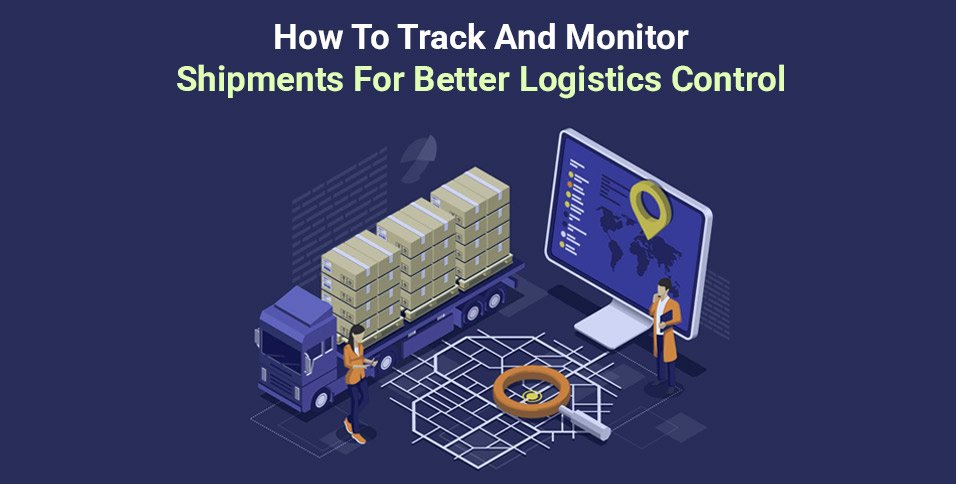The fast commercial environment requires businesses to heavily rely on efficient logistics systems for maintaining their competitive position. Supply chain management depends heavily on tracking and monitoring shipments as its fundamental operational components. Customers demand fast, transparent deliveries which businesses must fulfill to grow trust and loyalty among their customers. The monitoring of shipments through efficient systems delivers both timely delivery assurance and rapid delay response capabilities as well as operational optimization and minimal logistical expense reduction.
As global logistics expands in complexity the ability to track shipments through their entire journey gives companies competitive benefits. The visibility that updates in real-time improves team coordination and helps organizations make better choices to deliver superior customer experiences. Businesses that deploy advanced tracking systems in their logistics operations gain effectiveness in their supply chain management along with enhanced disruption response capabilities.
Using Technology To Gain Real Time Visibility
Contemporary logistics control systems initiate operations through digital tracking tools. Businesses receive live data about shipment positions through tracking systems that provide constant updates throughout delivery stages. Through the use of GPS and RFID tags and barcode scanning technologies businesses now obtain supply chain information across various devices in real time. Quick access to data lets teams detect problems with delivery delays and misrouting or lost shipments therefore allowing them to take fast solutions.
The combination of tracking data within software platforms that link with order management systems creates operational efficiencies. These platforms provide managers a single interface to view multiple delivery operations at once. The integration of systems helps organizations minimize mistakes and enhances their communication while ensuring precise delivery planning. All businesses should verify that their in-house tools alongside third-party courier dashboards deliver real-time access to complete shipment information.
Improving Communication With Customers And Partners
Effective shipment tracking systems enable better customer communication as their main advantage. Real-time precise updates enable clients to feel more confident and cut down support requests. The delivery timeline information helps customers trust the delivery process because it covers essential items and valuable packages. Shipment tracking provides organizations with the tools to deliver specific delivery time frames and status alerts thus creating superior customer experiences.
The monitoring of shipments produces major advantages in the communication process between different departments within a company and its external business partners. The shipment data accuracy demanded by Warehouse staff directly supports customer service representatives who then support supply chain managers in their operational tasks. Quick updates enable better coordination of receiving schedules and enhance inventory management choices while strengthening relationships with vendors. The combination of operation streamlining and improved customer satisfaction results from shipment tracking.
Minimizing Risks And Preventing Losses
Tracking shipments functions as an essential tool to discover possible risks and establish risk reduction strategies. Several circumstances such as traffic congestion along with customs clearance delays and adverse weather conditions can trigger shipment delays. Monitoring shipment movements enables businesses to discover problems promptly so they can minimize their negative effects. Through this predictive system companies can redirect their deliveries and notify clients while protecting their business operations from damaging interruptions.
The tracking of shipments enables businesses to stop losses that stem from both theft and damage. The majority of shipment tracking systems provide notice features for both unauthorized entry attempts and unexpected route variations. The effective use of these tracking tools enables businesses to detect unusual activities quickly which enables them to safeguard their valuable cargo shipments. The protection of shipment security becomes essential for businesses offering cheap shipping rates because it helps prevent profitability decline while maintaining customer contentment.
Choosing The Right Tools For Effective Monitoring
Businesses must select suitable tracking technology to meet their needs. The tracking solutions included by courier service providers differ in both quality and functional capabilities. An assessment should be made to determine if tracking tools satisfy the business requirements regarding accuracy and integration capabilities as well as user accessibility needs. Businesses that need a more complete tracking solution might benefit from third-party software which gathers information from several carriers.
Businesses must prioritize both software capabilities together with tracking system support capabilities and customization features when making their selection. Businesses need specific customized elements such as international customs update alerts and delivery performance analytics capabilities. The selection of tools which match organizational goals and expand with business growth guarantees ongoing value generation for shipment observation.
Improving Operations Through Data Analysis
Shipping system data allows organizations to enhance their operational logistics performance. Businesses achieve strategic improvements through their analysis of delivery time data and delay causes and carrier performance levels. Businesses can achieve superior route planning while choosing better vendors which results in precise delivery predictions for forthcoming shipments. Company operations become more efficient through data-based decisions which also eliminate unneeded expenses.
Tracking data integration with supply chain analytics creates foundations for business growth while enhancing supply chain resistance. Companies track performance indicators alongside delivery benchmarks to produce shipment trend-based projected forecasts. Businesses that perform detailed analysis have better decision-making abilities when they interact with courier services or when they improve their delivery operations for marketplace success.
Conclusion
The control of logistics operations depends heavily on successful shipment tracking and monitoring methods. The implementation of contemporary tracking systems enables businesses to diminish delivery errors while simultaneously establishing better connections with their customer base and business partners. Organizations achieve improved logistics strategies alongside performance balance through real-time monitoring and data analysis combined with enhanced communication systems. The delivery of consistent and efficient service depends heavily on proper shipment monitoring regardless of premium or cheap shipping options.
Also Read: 15 Supply Chain Management Certifications for Career Growth











